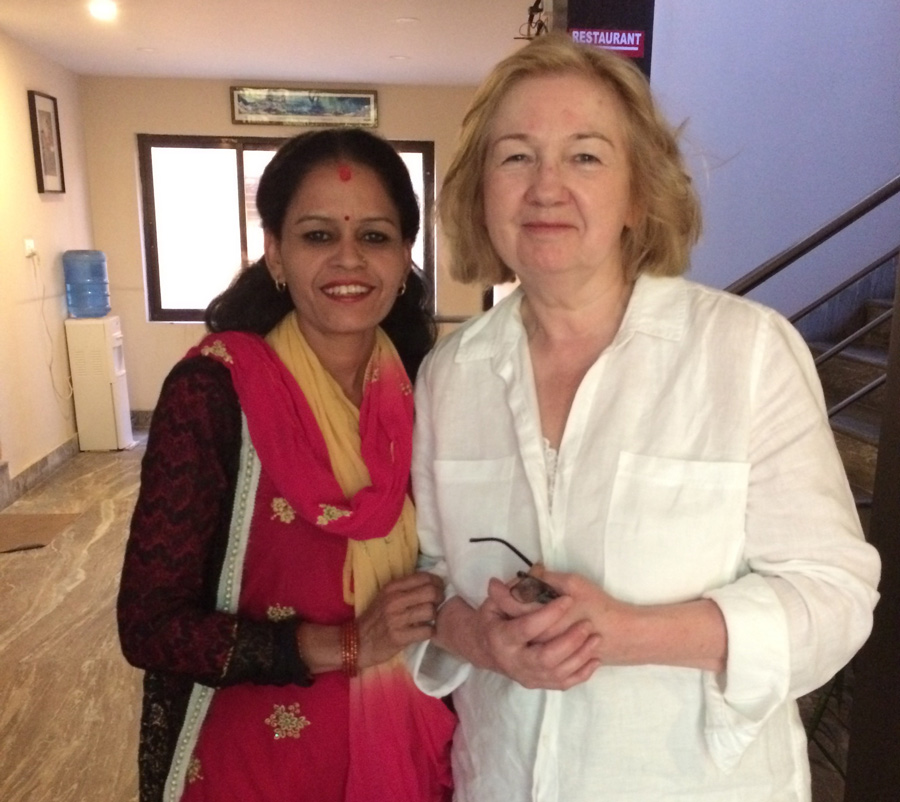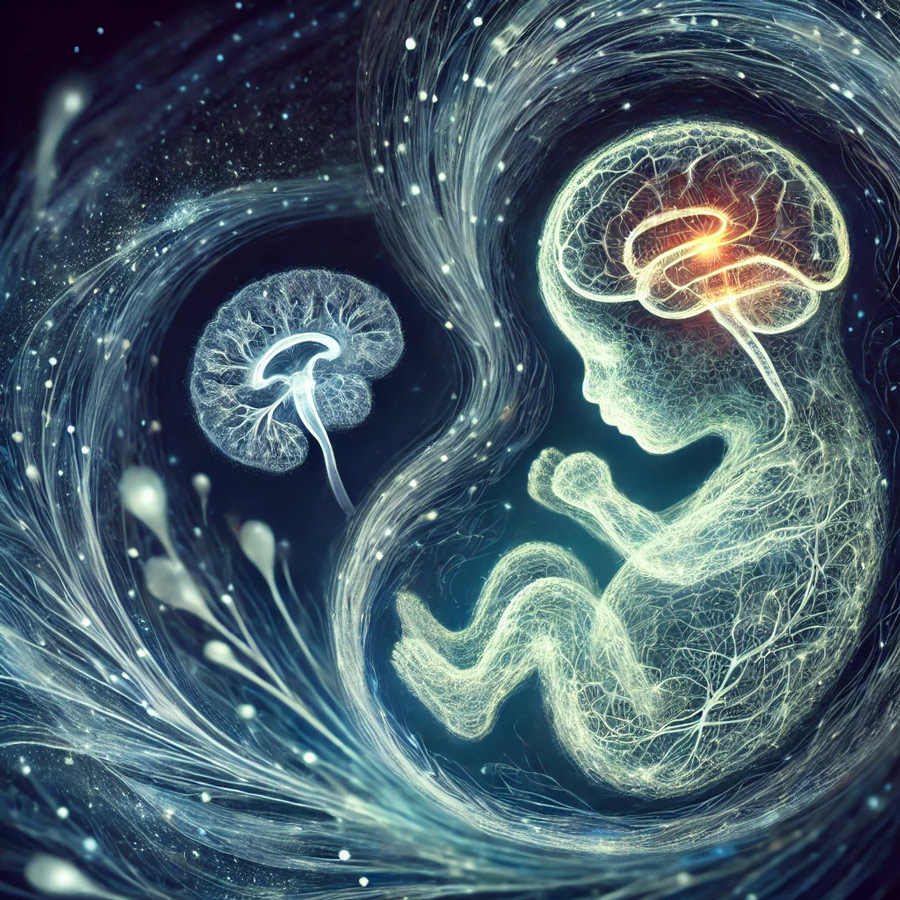- People diagnosed with reactive suicidal and homicidal violent conduct disorders exhibit aggressive behavioural tendencies, and some violent men and women are deemed untreatable.
- Marian Mulligan from Dublin CEO Sphenoid/IINM developed a neurological structural alignment programme in the treatment of violence in high-security prisons.
- The UK government home office advisory body researched and evaluated the regime implemented with a team of 200 expert natural medics.
- The rolling programme included natural medical therapies, such as cranial osteopathy nutrition acupuncture.
- The aim is to make this programme available globally to foster safer communities.
Violence and aggression can have detrimental consequences, sometimes creating cycles of trauma and abuse that are perpetuated across generations. According to the Global Peace Index, the economic impact of violence reached 19.1 trillion US dollars in 2023. The global prison population is estimated to be 11.5 million and increasing annually, while the US is leading globally, with 1.8 million people incarcerated.

Many violent offenders who access psychiatric or psychological care are diagnosed with conduct disorders, characterised by continuous patterns of aggressive, disruptive and anti-social behaviour, while others are trapped in a cycle of addiction or have lost the will to keep going.
Violent disorders can be challenging to treat and are sometimes even deemed untreatable, as affected individuals refuse treatment or abandon it before its completion. Yet if they are left untreated, violent individuals do not learn to cope with their emotions or any difficulties they are experiencing. Hence, they can end up causing serious harm to others or themselves.
Limiting violence in prisons is crucially important, as it can quickly escalate and, in extreme cases, even result in homicides or suicides. Moreover, if prisoners do not learn to be less reactive and violent, they could re-offend and commit further crimes once they are released at the end of their sentence.

Marian Mulligan, CEO of Sphenoid Ireland, is contributing to efforts aimed at reducing suicide and homicide rates in prisons across the UK. She developed the ICTp structural alignment treatment programme, an integrated naturopathy plan for the treatment of conduct disorders that combines various alternative medicine practices.
The ICTp structural alignment treatment programme
Alternative or complementary medicine is a broad field that encompasses various medical systems and practices that are not currently part of the dominant medical system. The programme Mulligan and her collaborators developed combines alternative medicine-based practices, including cranial structural alignment, cranial osteopathy, osteopathy, homoeopathy, herbal remedies, nutrition, family-based therapy, holistic counselling, yoga, sports or other physical activity and parenting skills training.
The ICTp structural alignment programme is holistic, meaning it collectively addresses various dimensions of well-being, including physical, mental, emotional and spiritual aspects.
These strategies are designed to improve both the physical and mental health of those participating in the programme. In addition, they are meant to encourage people’s self-awareness and resilience, strengthening their ability to constructively cope with negative emotions and challenges.

The ICTp structural alignment programme is holistic, meaning it collectively addresses various dimensions of well-being, including physical, mental, emotional and spiritual aspects, instead of only treating specific elements of conduct disorder. It also addresses the sources of aggression so that participants can become more aware of their triggers and reactions, as well as their trauma, adverse life events or other factors that could have contributed to the emergence of their violent tendencies.
The programme is rooted in the Natural Medical Law, which suggests that accessing the cause of issues contributes to the resolution of their effects. Collectively, its different components are aimed at improving aspects of physical and mental health, while also reducing pain, discomfort, fatigue, headaches, irritability, and anxiety.
Adjusting misalignments in the skull
The central component of the ICTp structural alignment programme is cranial structural alignment, a natural medicine-based treatment that focuses on aligning the bones that make up the skull (also called the cranium). The idea behind this approach is that misalignments or restrictions in the cranium bones can adversely impact brain function, physiological processes, and mental health.
The sacrum, a shield-shaped bone that stabilises the pelvis, is linked to the so-called occipital (the bone at the back of the head) by a membrane.

Cranial osteopathy theory suggests that trauma to the pelvic bone could thus manifest more prominently in the bones of the skull.
Cranial structural alignment practitioners are thus trained to detect obstructions in the skull, re-aligning cranial nerves to promote the natural circulation of cerebrospinal fluid (CSF) and reduce toxicity in the brain. By reducing toxicity, this practice is theorised to boost well-being, diminishing anxiety, anger, and other negative emotions, as well as physical discomfort and pain.
The initial pilot intervention at Coldingley prison suggests that the ICTp structural alignment treatment could be a valuable addition to existing natural treatments offered in prisons.
Essentially, the intervention created by Mulligan and her colleagues tries to reach back in time, intervening on the bones of the skull with targeted movements aimed at repairing lesion patterns linked to earlier adverse experiences. This, in turn, is said to promote the healthy functioning of the brain and body.
The programme’s first implementation
Mulligan and her collaborators trained several practitioners and naturopathy experts to deliver their naturopathy programme. It was initially delivered as part of a pilot intervention at Coldingley Prison in Surrey, where it has been running for over three years.
The programme could be accessed willingly by all interested individuals who were serving a sentence at Coldingley. The participants were first evaluated by one or more experienced counsellors during a one-hour assessment session.

After patients completed this initial assessment, counsellors devised a treatment plan that could be suitable for them and referred them to the practitioners who would be delivering their treatment. After completing the treatment, patients attended a further session to determine whether the treatment should be continued or discontinued and could then choose to re-apply for the same treatment.
Evaluation in high-security prisons
The goal of the pilot intervention at Coldingley Prison was to reduce suicidal ideation among prisoners while also treating them for behavioural and substance use disorders, reducing their stress levels, and mitigating violence within the prison.
The people who signed up for the programme had committed crimes of varying severities, ranging from drug-related offences to thefts, fraud, and violent crimes against another person. 70% of these prisoners sought alternative medicine treatments for psychological issues, while 38% were experiencing pain or other forms of physical discomfort.
The perceived effects of the programme and its potential for reducing violence and improving the well-being of prisoners were assessed both by the programme practitioners and by external researchers. The external evaluation was carried out by the Institute for the Study and Treatment of Delinquency (ISTD) in a study that explored the subjective experiences of individuals who had completed various alternative treatments at Coldingley.
To evaluate the perceived effects of the programme, ISTD researchers conducted face-to-face interviews with individuals who had signed up and completed alternative medicine treatments. Overall, the results of this evaluation appeared encouraging, as four out of five participants said that they felt that the treatment they received had improved their well-being.
The researchers found that participants had accessed the alternative medicine programme in the hope of finding relief from various mental and physical problems, including stress, joint pain, violence or anger, and addiction. During face-to-face interviews, participants emphasised multiple benefits of the treatments they received, including pain relief and stress reduction, as well as improved self-confidence, interpersonal relationships, personal control, sociability, morale, and general behaviour.
A promising holistic treatment for treating aggression
The initial pilot intervention at Coldingley prison suggests that the ICTp structural alignment treatment could be a valuable addition to existing natural treatments offered in prisons, as for many recipients found that it reduced their stress levels, pain, aggression, and violent reactions. Some participants also said that the treatment had contributed to improving their relationships with other inmates, their family and friends, making them feel more in control and less reactive to the actions of others.

Predictions suggest that self-harm and deaths in European prisons will rise over the next few years. Interventions such as the one devised by Mulligan could thus be of crucial importance, as they could provide prisoners who are struggling, and either could not find relief from conventional medical treatments or do not trust modern medicine, with other treatment options.
Future studies could further assess the impact of the ICTp structural alignment treatment programme, as this could help to improve it and understand cases in which it is most beneficial. The programme could soon also be introduced at other prisons in the UK and Europe, where it could contribute to the improvement of more prisoners’ health and well-being.











